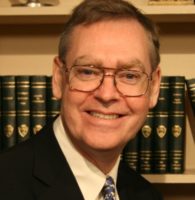Lewis and Clark’s Brilliant Failure: An Exploration of the Famous Expedition
Overview
In 1803, President Jefferson asked Lewis and Clark to find a straightforward water route to the Pacific Ocean. No white Americans had yet visited the Rocky Mountains, so the two leaders of the Corps of Discovery had no idea how high and wild its ranges were. They envisioned paddling up the Missouri River to its headwaters, carrying their canoes over a gentle ridge, and putting them into the headwaters of the Columbia River on the other side, before floating down to the Pacific shore. Instead, their three-year journey – from 1804-1806 — exploded that fantasy, subjecting them to grueling hardships. Neither were they able to fulfil Jefferson’s hope that they could pacify all the Native Americans they met, converting them into allies of the “Great White Father” in Washington.
Despite these disappointments, Lewis and Clark did a brilliant job as mapmakers, explorers, anthropologists, botanists, and diplomats: achievements for which we still honor them today. By the end of Professor Allitt’s lecture, you will better understand who these brave explorers were, how they set about their venture, the most important decisions they made, and the crises they faced together. You’ll also learn about their return to the “states” after three tough years, by which time many contemporaries assumed they had died somewhere along the trail.
Discussion Questions:
- How did Alexander Mackenzie’s journey influence Jefferson, Lewis, and Clark?
- How had the lives of the plains Indians changed in the century before Lewis and Clark’s arrival?
- Which winter tested the Corps of Discovery most: Fort Mandan or Fort Clatsop?
- Discuss Lewis and Clark’s leadership style and their distinctive strengths.
Recommended Readings:
Undaunted Courage: Meriwether Lewis, Thomas Jefferson, and the Opening of the American West, by Stephen Ambrose
The Journals of Lewis and Clark – edited by Bernard DeVoto
Lewis and Clark: The Journey of the Corps of Discovery, by Dayton Duncan and Ken Burns
Thomas Jefferson, by Joyce Appelby and Arthur Schlesinger Jr. (ed.)


